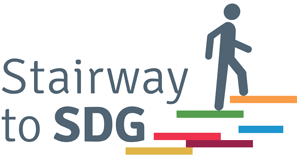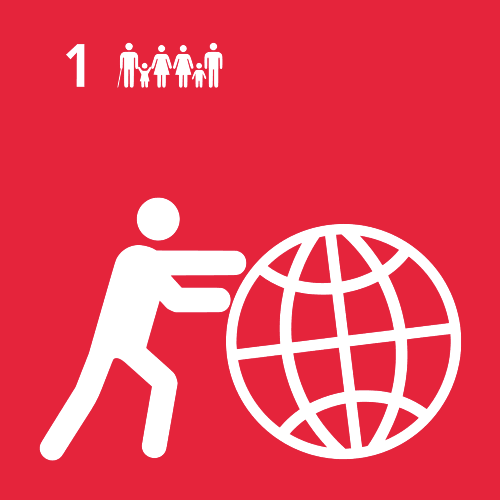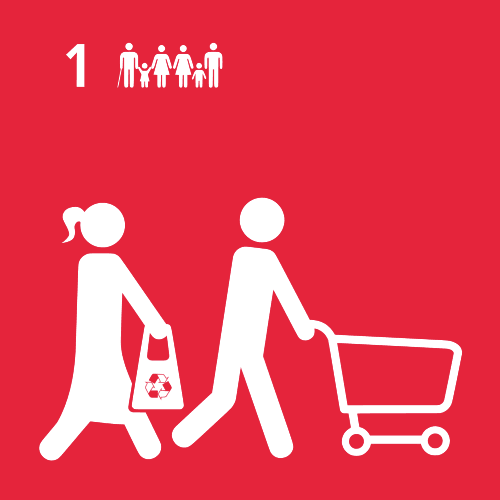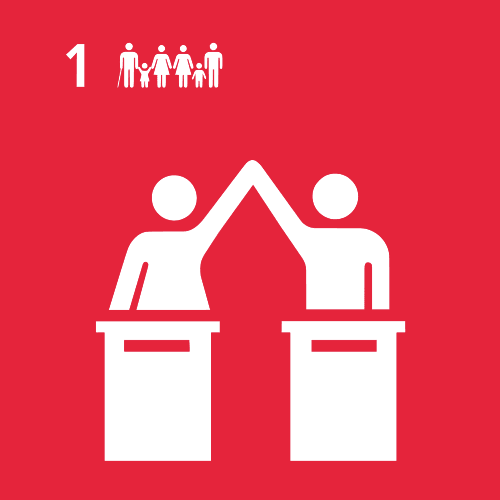End poverty in all its forms everywhere
This SDG represents the fight against poverty in all its forms.
We understand poverty not only as a lack of income but also as a violation of fundamental human rights. Poverty affects human dignity and denies access to essential resources. It can manifest itself in a lack of economic liquidity but also as a lack of food, education, health care, housing, employment, personal development, etc.
It is important to also consider the exclusion associated with poverty which causes those affected by it to be discriminated against and left without possibilities to participate in their communities. Since they are unable to participate in decision-making in areas that affect them, as a consequence, the decisions taken will usually even further profound their poverty.
Thus, students should be invited to reflect on the different forms of poverty and about the perceived importance of their economic development.
The SDGs can only be accomplished if they are accepted by all social actors, including educators. Moreover, since the agenda to reach and maintain sustainable development depends on future generations, its implementation in the education system is essential. The current students are future professionals. They will be capable of contributing to the promotion or hindrance of the policies and social habits through their actions.
The VET, oriented to the labour market, must take the responsibility that the current students – the future professionals – will stand on the side of their communities and their environment. The educational system must teach them not only knowledge but also civic attitudes. This means making students aware of their future service to society and the importance of using their work to improve people’s lives.
The SDGs can be also a good frame of reference to help understand the world from a global perspective – as a single entity where every person is related to their environment and where every small action has its consequences. And also as a place where the value of each person is important and can represent the beginning of small changes that can turn into great transformations.










